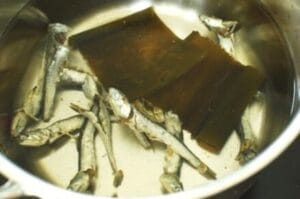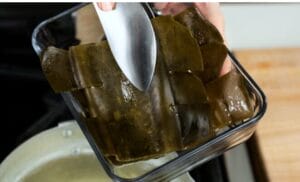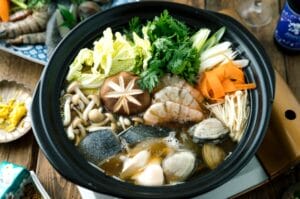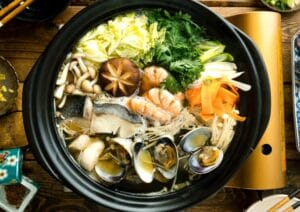Hearty nabe soup recipe: Try this easy one-pot nabe soup packed with meat, seafood, veggies and noodles. Customize it to your taste and simmer in dashi broth for a comforting, crowd-pleasing dinner.
I’ve always had a special place in my heart for Japanese cuisine, especially comforting one-pot dishes like nabe soup. As the cold weather sets in, I find myself craving the warmth and community of gathering around a bubbling pot filled with wholesome ingredients.
Nabe brings me joy not just because of the mouthwatering flavors, but because of the memories it evokes. I fondly remember visiting Tokyo years ago in the winter. My friends brought me to their favorite neighborhood restaurant, where we huddled together on tatami mats while the waitstaff prepared a steaming pot of mizutaki nabe, filled with chicken, vegetables, and chewy udon noodles. We talked and laughed for hours, dipping our chopsticks into the shared pot. The dashi broth warmed me from the inside out.
Now that I’m back home, Japanese hot pot nights have become a beloved tradition with my family. I love experimenting with different broths and ingredients, like adding spicy kimchi for a Korean twist. The kids get so excited choosing their favorite veggies and proteins. We set up our electric skillet right at the dinner table, gather around, and catch up on our days while ingredients bubble away.
I find such comfort in this dish – it’s the epitome of hygge. The sizzling pot, the rising steam, the rich aromas – nabe brings people together. I’m excited to share this nabe soup recipe so you can create special memories with your loved ones too. I add my own personal twists, like ponzu sauce for dipping, to make it truly authentic yet uniquely yours. Here’s to keeping each other warm, well-fed, and connected this season!
Best Nabe Soup Recipes
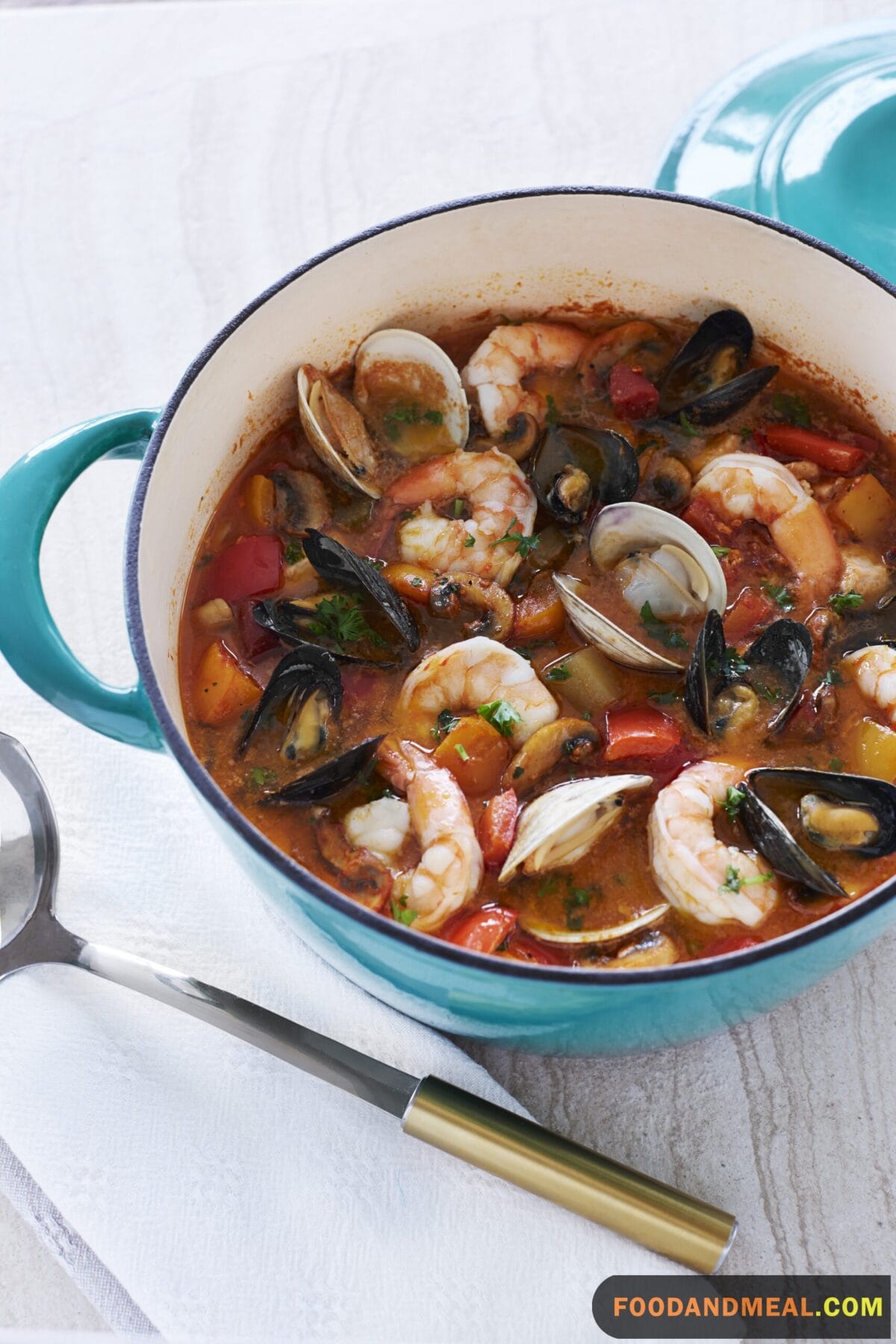
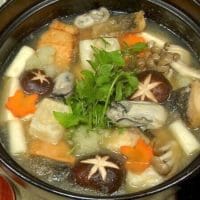
Nabe - Japanese Seafood Soup
Ingredients
- Water to make broth about 4-8 cups or ready-made dashi stock
- 1 cup anchovy dried boiled , optional if using ready-made Dashi stock
- 1 piece kombu or kelp, optional if using ready-made Dashi stock
- 1 medium onion sliced
- 1 cup shiitake mushrooms cored and cut into bite-sized pieces
- ½ cup enoki mushrooms roots cut off and washed
- ½ cup green onions each cut into 4 pieces equal length
- ½ head Napa cabbage cut into large pieces
- 1 cup firm tofu cubed
- 1 pound shrimp deveined, clean and shelled
- ½ pound cod fillet or fillet of any fish of choice
For dipping sauce
- 2 tablespoons green onion chopped
- 1-2 tablespoons green Thai chili chopped
- 1 cup cold water
- ¼ cup white vinegar
- 1 cup soy sauce
Instructions
- Fill a 4-quart pot about ½ full with water or dashi stock. Drop in the anchovies and kombu. Bring it to a boil. Reduce the heat and allow it to boil for 10 minutes.

- Remove it from the heat and scoop out the anchovies and kombu from the broth.

- Add all the vegetables, tofu, and seafood to the broth.

- Bring it to a boil again and continue the shrimp have changed color.

- While cooking the soup, combine the ingredients for the sauce in a bowl and set it aside.

- Serve soup with the dipping sauce.

Video
Notes
Nutrition
© Food And Meal
This website provides approximate nutrition information for convenience and as a courtesy only. Nutrition data is gathered primarily from the Spoonacular Database, whenever available, or otherwise other online calculators.
Nabe in a Slow Cooker
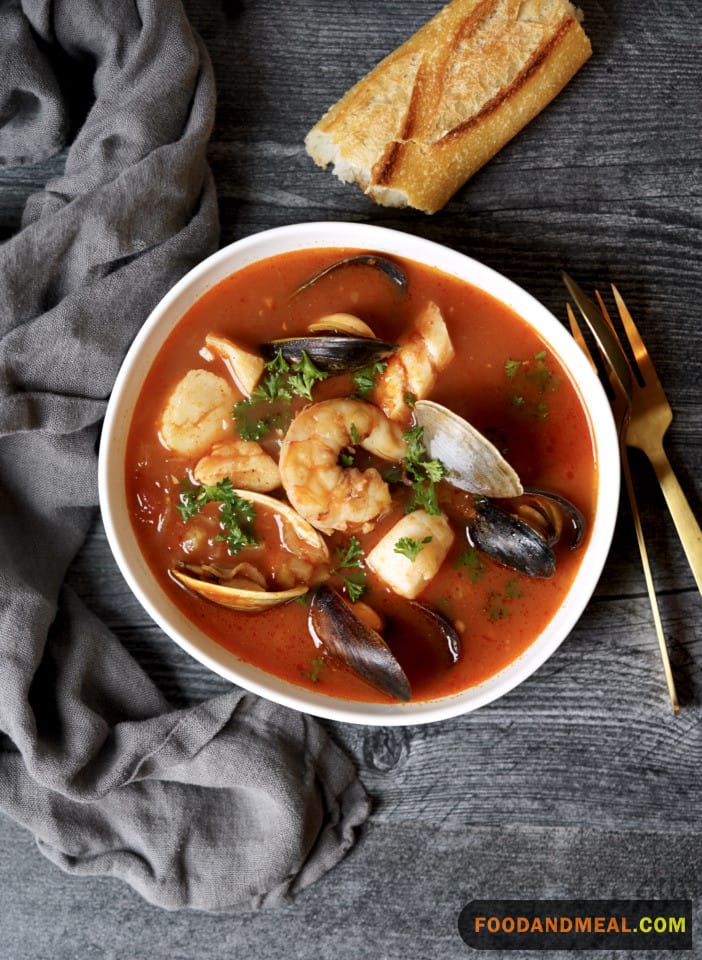
I love making Japanese hot pot in my slow cooker. It’s so easy and comforting. Just throw in your favorite veggies like cabbage, onion, daikon, carrot, and mushrooms. Then add some chicken meatballs seasoned with ginger and green onions for a tasty twist. Pour in your dashi or broth and let it simmer away. The smell fills my kitchen and makes me feel happy. After 6-8 hours, the chicken and veggies are fall-apart tender. I gently mix in the fried tofu, green onion, soy sauce, sake, and mirin. The flavors marry together for a wonderfully savory meal. Adding some noodles or rice makes it complete. Enjoying this soul-warming nabe with friends and family is one of my favorite things. Slow cooker nabe warms my home and my heart.
Instant pot Nabe soup recipe
To make nabe soup in an Instant Pot, you’ll want to use the following steps:
- Turn on the Instant Pot and select the Saute function. Add the broth, dashi, mirin, soy sauce and ginger. Bring to a simmer.
- Add in the proteins and vegetables except for the noodles. Lock the lid in place and make sure the valve is set to Sealing.
- Select the Manual/Pressure Cook function and set to high pressure for 3 minutes. Allow for a 10 minute natural pressure release before opening the lid.
- Add in the noodles and allow them to soften for 2-3 minutes.
- Ladle the nabe soup into bowls and garnish with scallions, sesame seeds etc. Enjoy!
The great thing about Japanese hot pot is you can customize it to your tastes with different broths, proteins and veggies. The Instant Pot cuts down the cooking time while still infusing lots of flavor.
Tips for making Japanese Hot Pot soup

Serving Suggestions
- Rice Dishes: Since nabe soup is rich in protein and vegetables, it pairs well with a simple bowl of steamed rice to soak up the delicious broth. Rice dishes like:
- Plain steamed rice
- Persian Rice
- Tanzanian Pilau Rice
- Salad: A refreshing salad can cleanse the palate between bites of the Japanese hot pot. Consider salads that are crisp and lightly dressed:
- Pickles: Japanese meals often include an assortment of pickles (tsukemono) to add crunch and tanginess, balancing the savory depth of the nabe:
- Dipping Sauces: If the nabe soup ingredients are meant to be dipped after cooking in the pot, small bowls of dipping sauces can enhance the flavors:
- Ponzu Sauce
- Sesame Candies
- Shoyu Ramen (The tare component could be used as a dipping sauce)
- Noodles: Noodles can be added towards the end of the meal directly into the nabe broth, or served on the side as a separate course:
- Yaki Udon
- Soba Noodles
- Tempura Udon
- Beverages: To accompany the Japanese hot pot, consider serving light beverages that can help cleanse the palate:
- Soy Milk
- Oat Milk
- Green Tea Ice Cream (as a dessert-drink hybrid)
- Dessert: Finish the meal with a light and not overly sweet dessert, providing a fresh end to the dining experience:
- Matcha Ice cream
- Pumpkin Pie
- Apple Crumble
Cooking Tips
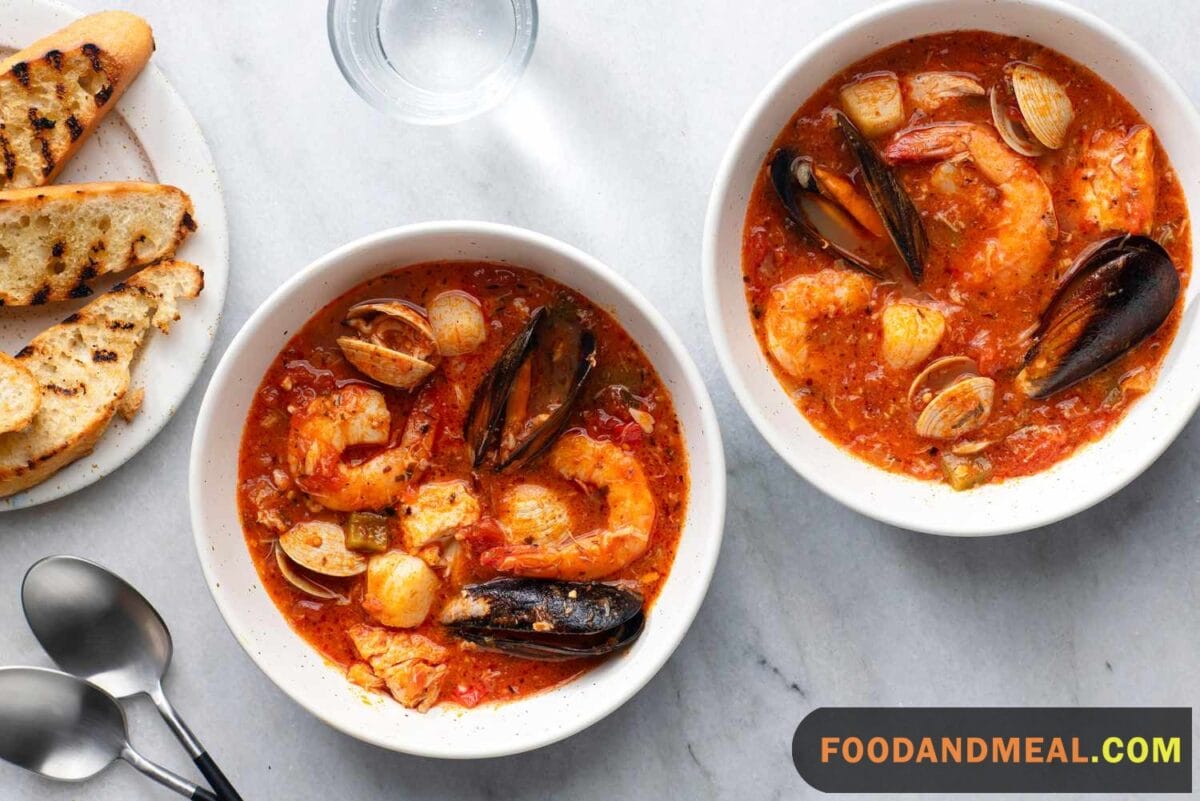
To enhance your nabe soup experience, consider these tips: use fresh, seasonal ingredients for a harmonious blend of flavors; take your time to let the ingredients simmer gently, allowing them to release their full essence into the broth. Precision isn’t as crucial here as patience and care.
Balance is key—combine a variety of textures and tastes, from tender slices of meat to delicate vegetables and silky tofu. A personal touch, like a sprinkle of green onions or a dash of chili oil, can elevate the dish to new heights, making each bite an intimate reflection of your culinary spirit.
Top 9 FAQs about Nabe Soup

1. What is nabe made of?
- Japanese hot pot typically consists of a variety of ingredients such as thinly sliced meat (often beef or pork), tofu, vegetables (like Napa cabbage, mushrooms, and leeks), and sometimes noodles, all cooked in a hot pot with a flavorful broth.
2. What is the soup that sumo wrestlers eat?
- Sumo wrestlers often eat a hearty hot pot called Chanko Nabe. It contains a mix of protein, vegetables, and carbs, providing the necessary energy and nutrients for their rigorous training regimen.
3. Why is Chanko Nabe healthy?
- Chanko Nabe is considered healthy due to its balanced combination of ingredients. It provides a variety of nutrients, including proteins, vitamins, and minerals, helping to sustain the high energy demands of sumo wrestlers.
4. Is sukiyaki and nabe the same?
- Sukiyaki and nabe share similarities as both are Japanese hot pot dishes, but they differ in their flavor profile and ingredients. Sukiyaki is sweet and savory, often featuring thinly sliced beef, vegetables, and a sweet soy-based broth, while nabe has a more diverse range of ingredients and can use various broths.
5. Can I make Japanese hot pot with seafood?
- Yes, absolutely! Seafood lovers can add shrimp, clams, mussels, or even fish fillets to their Nabe. Just remember to adjust the cooking times to ensure seafood is perfectly cooked.
6. Can I make Nabe vegetarian?
- Of course! Create a delectable vegetarian Japanese hot pot using tofu, various mushrooms, and an assortment of vegetables. Use vegetable broth instead of dashi for that umami flavor.
7. Is it okay to mix dipping sauces?
- Certainly! Mixing dipping sauces can yield exciting new flavors. Experiment to find your favorite combinations.
8. Can I save and reuse the broth?
- Indeed, you can! If you have leftover broth, strain and store it separately in the fridge for up to 3 days. Reheat and use it as a base for soups or stews.
9. Can I use an electric slow cooker for Nabe?
- Yes, you can use an electric slow cooker for Japanese hot pot . Follow the alternative slow cooker method provided earlier, and you’ll have a convenient and delicious Nabe ready to enjoy.
Conclution
I hope this nabe soup recipe inspires you to gather your loved ones and create special memories around the dinner table this season. If you try this dish, let me know! I’d love to see your nabe creations and hear how it brought warmth and joy to your family and friends.
Don’t forget to visit Food And Meal at foodandmeal.com for more cozy one-pot recipe ideas. Wishing you a delicious, heartwarming winter ahead!
I'm James F Anderson, a noted sous chef from London and a Le Cordon Bleu alumnus. My career began in a Michelin-starred Parisian eatery, where my blend of classic and contemporary cooking, using seasonal ingredients, earned accolades. Recognized in culinary publications and on cooking shows, I’m committed to mentoring aspiring chefs and delivering memorable dining experiences, marking me as a standout talent in the culinary world.



